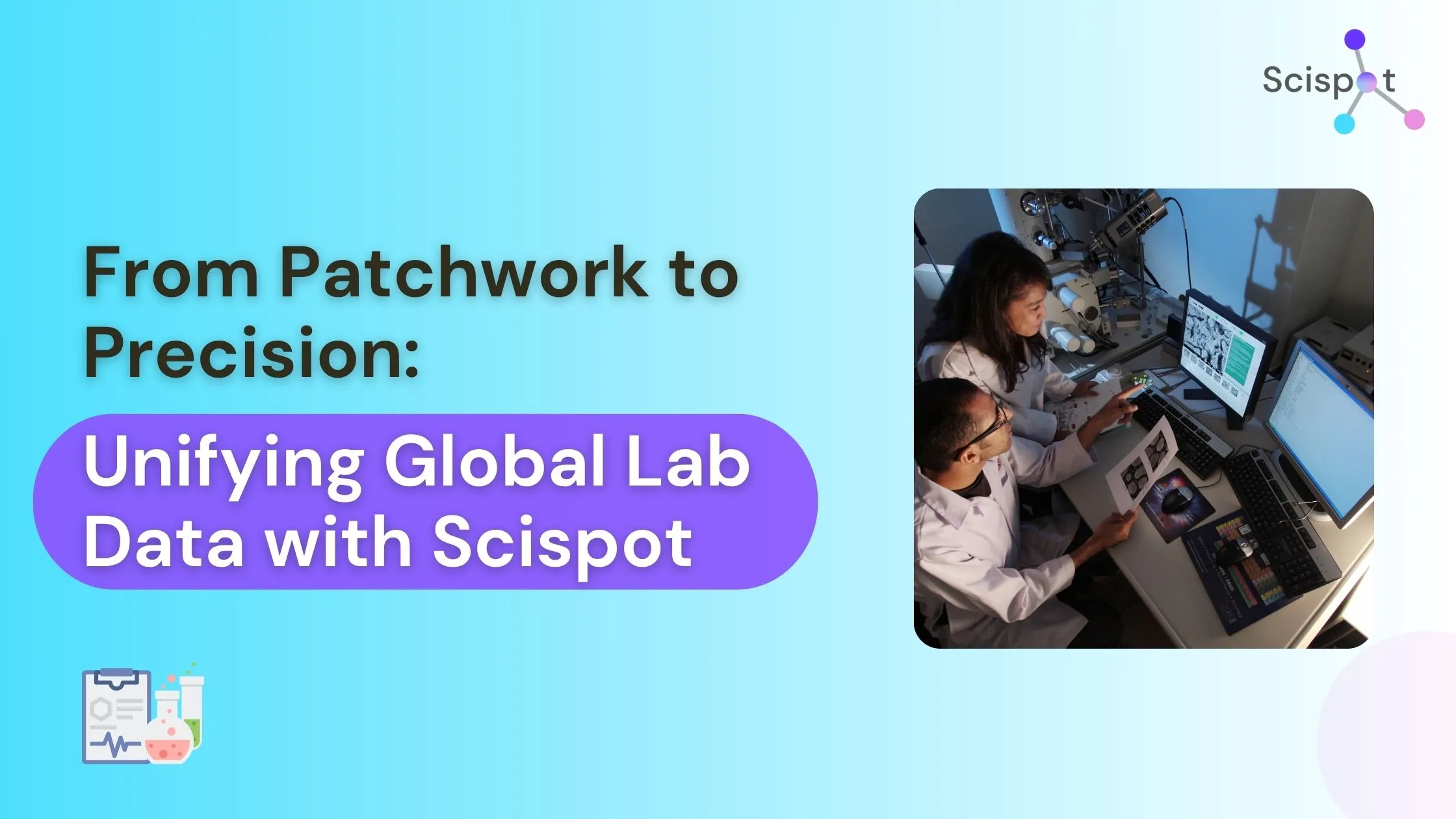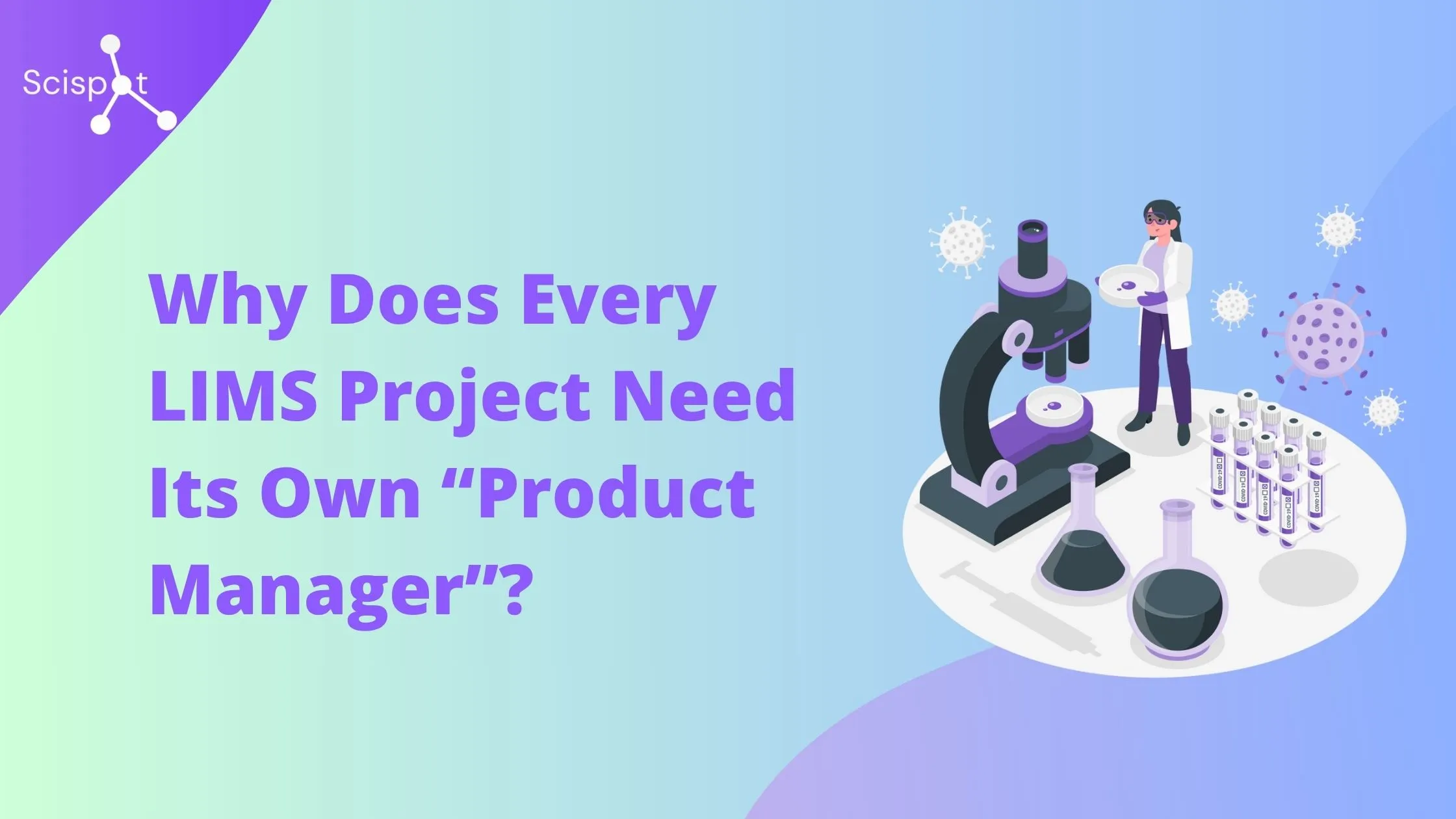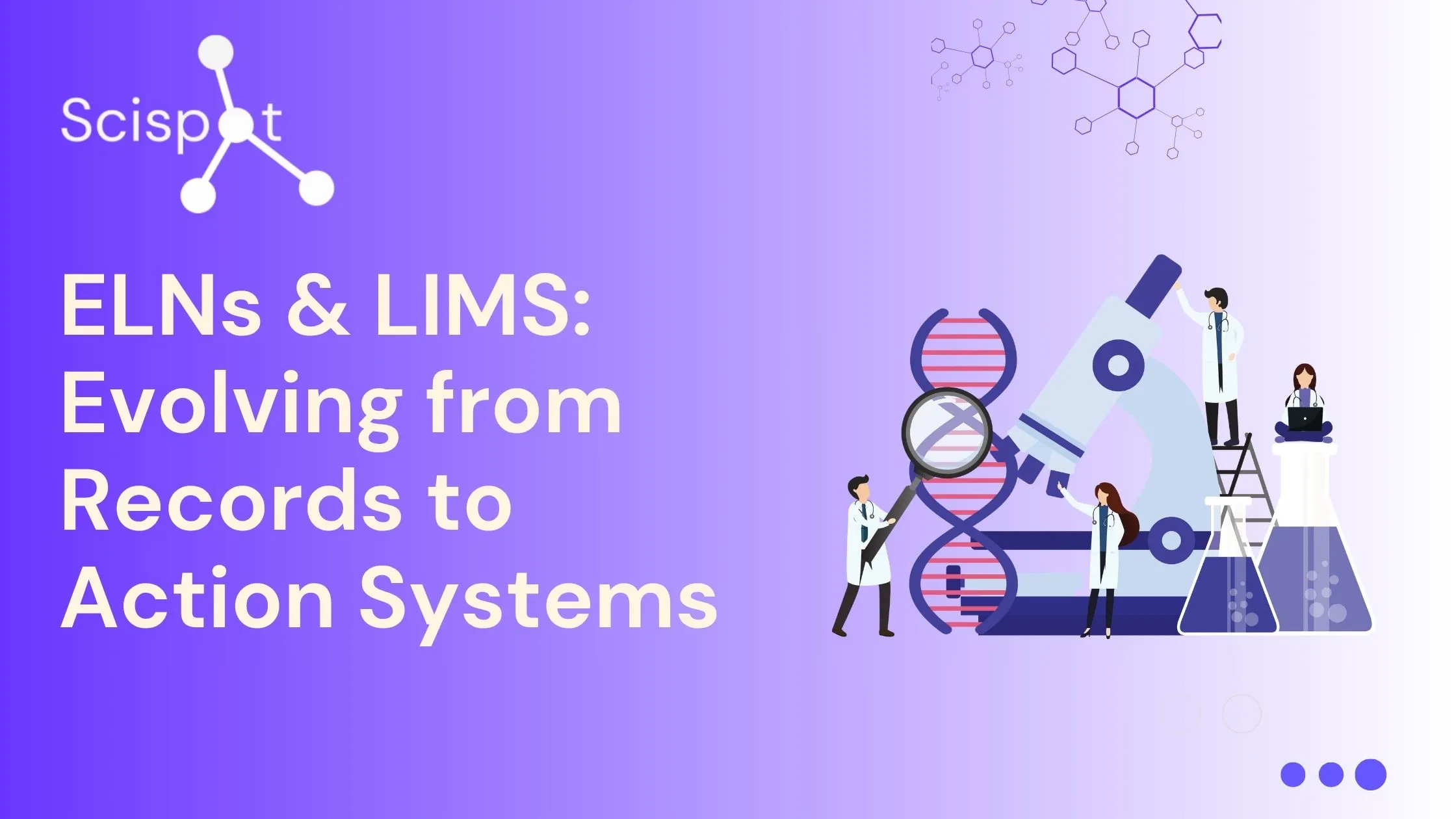Agriculture is becoming more data-driven, yet many companies struggle with fragmented data and inefficient workflows. Without reliable agricultural lab management software, agritech businesses face challenges in managing experiments, tracking inventory, and integrating lab data with field trials. This lack of connectivity leads to inefficiencies, errors, and compliance risks.
As the industry evolves, capturing, organizing, and using data effectively is essential. A well-structured data system ensures research is reproducible, decisions are based on accurate information, and regulatory compliance is easier to manage. Smarter lab management practices help agricultural companies boost research productivity and drive innovation in crop development, soil testing, and plant genetics.
Challenges in Agricultural Labs and Research Facilities
Agricultural labs generate large volumes of data, but disconnected systems make it difficult to manage workflows and maintain traceability. Some of the biggest challenges include:
- Data Silos Between Labs and Field Trials Companies struggle to integrate lab-generated data with agricultural field trials, making it difficult to align research with real-world farm conditions.
- Manual and Inefficient Inventory Tracking Without proper inventory tracking for biotech labs, managing reagents, samples, and lab materials across multiple locations is time-consuming and prone to errors.
- Compliance and Data Integrity Issues Agricultural labs need to maintain accurate records to meet industry standards, ensure reproducibility, and pass audits.
- Limited Real-Time Data Access With research teams in different locations, real-time data access is crucial but often unavailable, leading to delays and inefficiencies.
- Inconsistent Workflow Automation Manual processes slow down research and increase the risk of human errors, impacting data accuracy and experiment reliability.

Essential Instruments Used in Agricultural Labs
Agricultural research depends on advanced instruments to analyze soil, plant health, and environmental conditions. Some key instruments include:
- Soil pH Meters – Measure acidity or alkalinity to optimize crop selection and fertilizer use.
- Soil Moisture Meters – Help determine irrigation needs by assessing soil water content.
- Balances and Scales – Ensure accurate sample and reagent measurements for precise experiments.
- Spectrophotometers – Analyze chemical compositions in soil, water, and plant tissue.
- Microscopes – Examine microorganisms, plant cells, and soil particles to support plant pathology studies.
- Incubators – Maintain controlled conditions for microbial studies in soil and plant health research.
- AutoAnalyzers – Automate the testing of soil and plant samples, ensuring fast and accurate results.
Integrating these instruments into a farm data management system improves efficiency, accuracy, and accessibility, but requires a robust solution to centralize data.
How Scispot’s LIMS for Agriculture Solves These Problems
Scispot provides a LIMS for agriculture designed to unify workflows, automate data management, and improve efficiency. Its platform helps agricultural labs by:
- Connecting Lab and Field Data
- Enables real-time connectivity between laboratory research and agricultural field trials, eliminating data silos and improving data flow.
- Ensures experiments are traceable at every stage, making research more reliable and actionable.
- Automating Inventory Tracking and Sample Management
- Provides full visibility into reagents, samples, and materials to prevent losses and inefficiencies.
- Sends automated alerts and simplifies inventory tracking for biotech labs, improving procurement and cost management.
- Improving Workflow Automation
- Standardizes experimental workflows through lab automation for agriculture research, reducing manual tasks and human errors.
- Ensures consistent data collection, documentation, and analysis.
- Supports remote collaboration by allowing multiple research teams to access, edit, and analyze data in real time from different locations.
- Ensuring Scalability and Compliance
- Helps meet regulatory compliance with built-in traceability features.
- Works for both small and large agricultural research environments, making it a versatile tool for different-sized companies.
- Stores all experiment histories securely, ensuring easy access to audit trails and data modifications.

The Benefits of Using an ELN for Agritech
By adopting an ELN for agritech, agricultural companies can gain:
- Faster Decision-Making Real-time data insights help improve research outcomes and decision-making in crop management, soil health, and genetics.
- Higher Productivity Automation of repetitive tasks allows scientists to focus on research instead of manually organizing and entering data.
- More Accurate Data A centralized farm data management system reduces errors and improves the integrity of research findings.
- Lower Operational Costs Reducing manual errors and improving data management efficiency leads to cost savings and better research outcomes.
- Better Team Collaboration With cloud-based access, multiple teams can work on experiments simultaneously, share data easily, and speed up innovation cycles.
The Future of Agricultural Research with Smarter Lab Management
Agricultural research labs need a unified, scalable solution to keep up with evolving industry demands. A fragmented approach to managing lab data, inventory, and compliance leads to inefficiencies and lost productivity. Instead of relying on multiple disconnected tools, agritech companies require an all-in-one platform that combines LIMS, ELN, and seamless integrations.
Scispot offers a single, fully integrated solution that eliminates data silos and manual inefficiencies. As a LIMS for agriculture, it ensures data traceability, compliance, and structured workflows. Its ELN for agritech enables research teams to document experiments, collaborate in real time, and maintain audit-ready records. Additionally, Scispot's powerful integrations allow labs to connect existing instruments and software, ensuring smooth data flow across operations.
With automated inventory tracking for biotech labs, a centralized farm data management system, and built-in workflow automation for agriculture research, Scispot empowers agritech companies to streamline R&D, improve data accuracy, and accelerate innovation—all in one flexible, AI-powered platform.
Future-proof your agricultural research lab with Scispot. Book a free consultation call today to explore how our integrated LIMS + ELN + instrument connectivity can enhance efficiency and scalability for your lab operations.
.gif)











